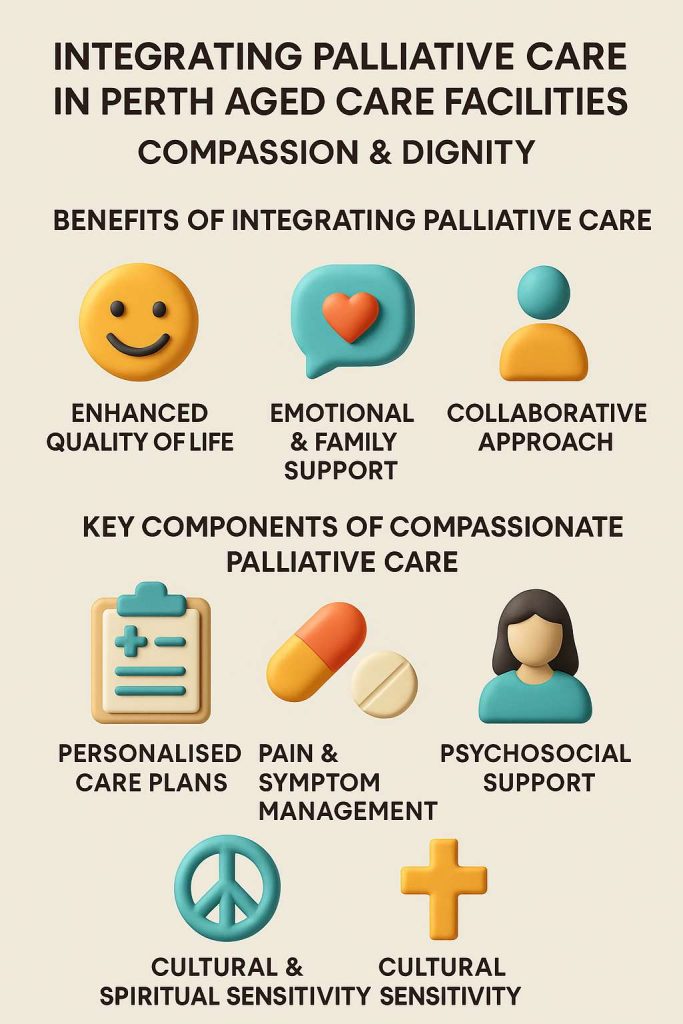Palliative care plays a critical role in aged care facilities, ensuring residents with life-limiting illnesses receive comfort, dignity, and emotional support during the final stages of life. As the ageing population in Perth continues to grow, the integration of specialised palliative services in local facilities has become a priority for improving resident wellbeing and supporting their families.
The Importance of Palliative Care in Aged Care
Palliative care goes beyond medical treatment; it encompasses physical, emotional, psychological, and spiritual support. In an Aged Care Perth setting, this approach provides personalised care plans that prioritise pain management, symptom control, and maintaining quality of life. By addressing each resident’s unique needs, palliative care helps to reduce unnecessary hospital transfers and supports a peaceful transition.
Benefits of Integrating Palliative Care
1. Enhanced Quality of Life
Residents receive compassionate pain and symptom management, improving comfort levels and reducing stress.
2. Emotional & Family Support
Trained teams offer counselling and emotional support to both residents and their families, ensuring everyone feels heard and respected.
3. Collaborative Approach
Integration ensures that doctors, nurses, and carers work closely with palliative specialists to provide seamless care, enhancing overall outcomes.
Implementing Palliative Care in Aged Care Homes
Successful integration requires staff training, access to specialist services, and clear communication with families. Facilities that provide palliative services within an Aged Care Home Perth foster trust by ensuring residents can remain in familiar surroundings while receiving dignified care. This approach reduces the emotional strain often associated with hospital transfers.

Key Components of Compassionate Palliative Care
- Personalised Care Plans: Tailored to each resident’s medical history and personal preferences.
- Pain & Symptom Management: Ensuring relief from discomfort using evidence-based methods.
- Psychosocial Support: Helping residents and families navigate the emotional challenges of end-of-life care.
- Cultural & Spiritual Sensitivity: Respecting diverse beliefs and customs to provide holistic support.
Building Staff Expertise
Investing in training equips carers and nurses to recognise early signs of distress, communicate empathetically, and respond effectively to residents’ needs. Regular collaboration with palliative care specialists ensures facilities maintain high standards of compassionate service.
Conclusion
Integrating palliative care in Perth’s aged care facilities is essential for delivering end-of-life support with dignity and empathy. By prioritising pain management, emotional wellbeing, and family inclusion, facilities can create a compassionate environment that respects the wishes and comfort of residents. A commitment to comprehensive palliative care ensures aged care services remain focused on quality of life until the very end.
